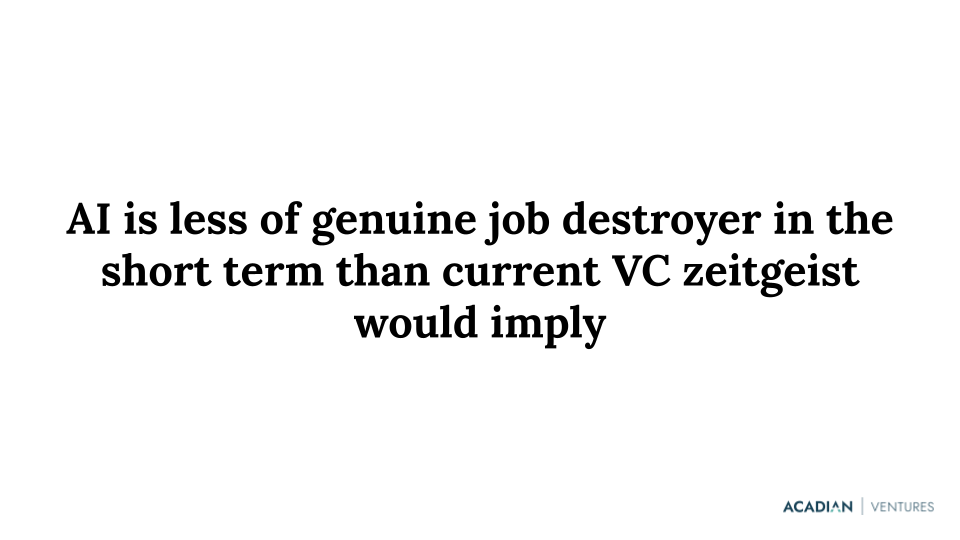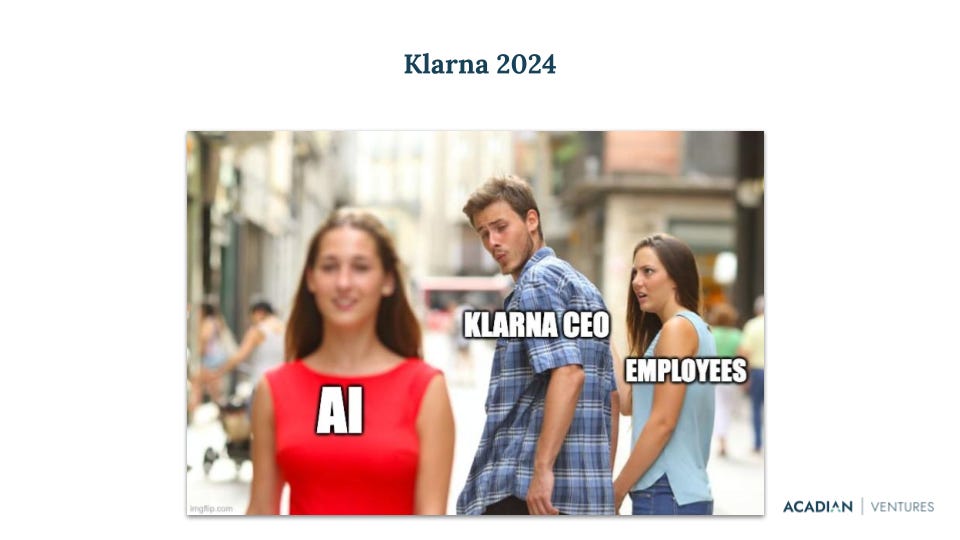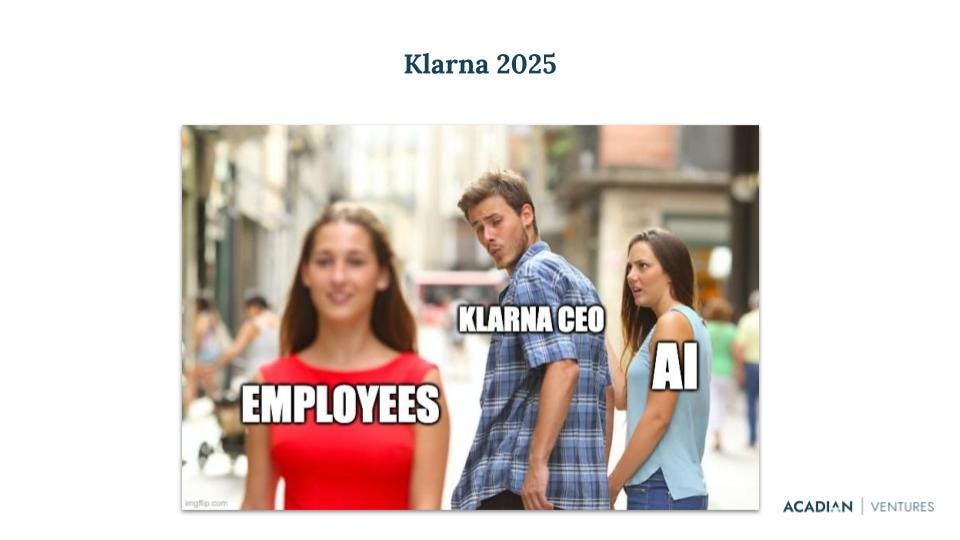Continuing the series on the Acadian AI thesis presentation from our recent AGM.
You can read part 1 and 2 for the flow, or you can read this stand alone. Also you can watch the full video if you prefer.
It’s obvious that AI is going to have a long term impact on work and employment. There are a bunch of historical parallels going back to Fred Engels and Adam Smith, and lots of recent predictions too. There is some early evidence of changes, for instance in coding and customer support, but beyond the confines of the software industry bubble, significant changes are likely to have a longer gestation period than many of my VC peers are predicting. Work itself will morph, so we aren’t dealing with a zero sum game. It’s a lot more complicated than just replacing a human with an agent. Especially when many of the agents aren’t actually production ready.
Before alarm clocks, people were gainfully employed waking other people up. I’ve always wondered who woke them up.
Ethan Mollick is usually on the AI optimistic side of things than I am, yet he is also sounding a bit more cautious on AI and job replacement.
I’d argue that a lot of the job reduction announcements we read about that cite AI aren’t actually AI driven.
Labelling cost-saving as an AI initiative makes it seem a lot cooler.
Founders of AI foundation companies have a habit of over-estimating their technologies’ prowess and also its impact on work. If your market cap is based on AGI being around the corner, then you are going to suggest mass unemployment is around the corner too. I’m not convinced.
And one piece of advice, don’t base your strategy on what the Klarna CEO says.
Seems that the Duolingo CEO is also rolling back some of his more aggressive AI posturing too.
To be clear: I do not see AI as replacing what our employees do (we are in fact continuing to hire at the same speed as before),” he wrote. “I see it as a tool to accelerate what we do, at the same or better level of quality. And the sooner we learn how to use it, and use it responsibly, the better off we will be in the long run.
Judging AI success by how many people you can fire seems doomed to fail.
As usual, I end with a tune that has a vague link to the post theme. The Human League from November 1981. This was massive, and it holds up really well.
As a bonus for the deep musical technology folks, here is how it was made.








I very much agree with this take and that truth lies (as it always does) somewhere in between the "AI will take ALL jobs" and "AI is just hype, nothing to see here."